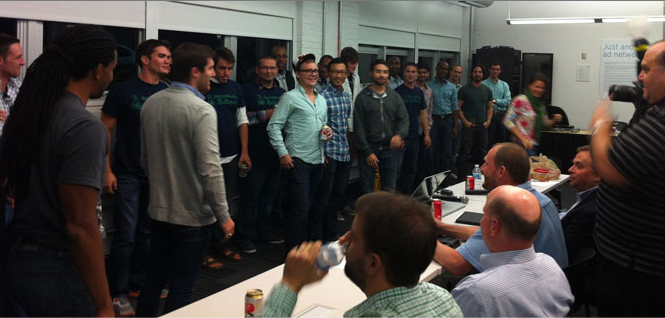Chris Ashworth is the founder of software company Figure 53 — and one of several people behind Made with ♥ in Baltimore — but he is not a startup owner.
Mind you, he doesn’t dislike startups, or even efforts in Baltimore to grow a startup community, as he lays out in a blog post on his company website.
But Ashworth’s post is incisive, mainly for the thoughtful manner in which he calls out the idolatry of “failing fast” within startup culture, the adorably naive label placed upon tech companies that aren’t startups and are profitable (“lifestyle businesses”) and why expedited failure, while a salient hallmark of startup cities nationwide, might make programmers and tech specialists locked into well-paying IT jobs disinclined to take the initial or additional risks that accompany forming a company out of thin air if they’ve already failed once or twice.
As Ashworth writes, “Even if we’re lucky enough to have the resources to become a startup city, going all-in on startups seems narrow.”
It doesn’t seem narrow. It is narrow.
People prone to decry the mere existence of startups do so because it’s easy to point at all the startups that do absolutely nothing for anybody. Add an “ly” to a noun and you’re a startup. (This Technical.ly Baltimore reporter reportedly still has his job.) Add an “ly” to a noun and Pharrell Williams at your launch party, and you’re an obnoxious startup that flaunts other people’s money and has no business calling itself a business.
Although a principal function, if we can call it that, of startups is to fail fast. Early-stage technology companies abound, but startups are meant to hit it big, and fast, as Ashworth notes: “Some folks will call any young technology company a startup, but I don’t like that usage. … Instead, a startup is very specifically about getting big, fast.”
But failure serves its function. Given enough density — of startups, of talented programmers and business-savvy people, of investment money — people with the aptitude to build successful startups, and investors with the money to seed those potentially successful startups, will stick around.
That’s the long-term goal for Baltimore, and Maryland overall, which boasts the fourth-highest concentration of tech workers in the U.S. Investing in startups is a good way to retain talented tech workers, attract tech workers from other states, keep smart college graduates from Baltimore city colleges in Baltimore city and create jobs. More than 34,000 jobs were created by startups in 2011.
But as Technical.ly Baltimore wrote in December 2012, Baltimore is not a tech startup hub, primarily because much of the local IT talent is working (or trapped, depending on one’s viewpoint) for larger companies or federal government contractors.
So make a bet on startups, but as Ashworth notes, make bets too on those smaller, intermediary technology companies — those “lifestyle businesses” — that can serve as a softer landing pads for technology workers interested in the startup scene, but not quite ready to take the biggest risk of all: giving up their well-paying tech job in a stable company to found a startup or work for a startup that isn’t yet guaranteed to pay them a good salary.
Let’s have “a conversation that isn’t all startups, all the time,” Ashworth writes.
This afternoon, Technical.ly Baltimore will be hosting such a conversation at our State of Startups event, part of Baltimore Innovation Week 2013.
‘Going all-in on startups seems narrow’: Figure 53’s Chris Ashworth







